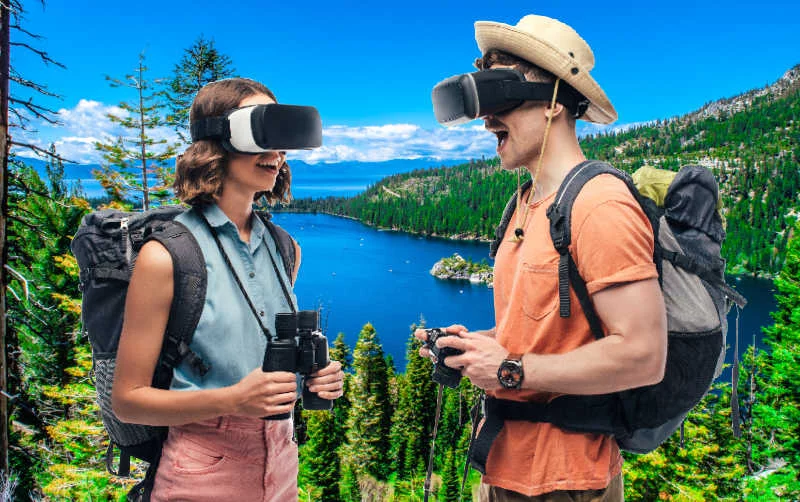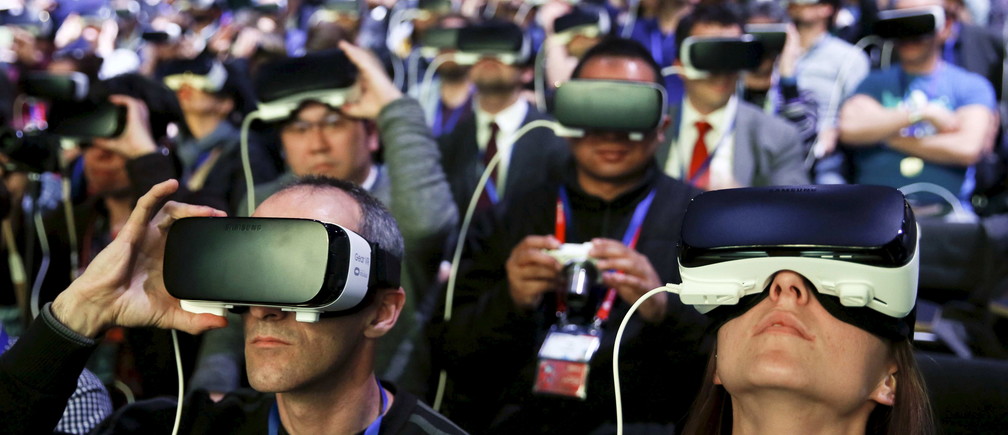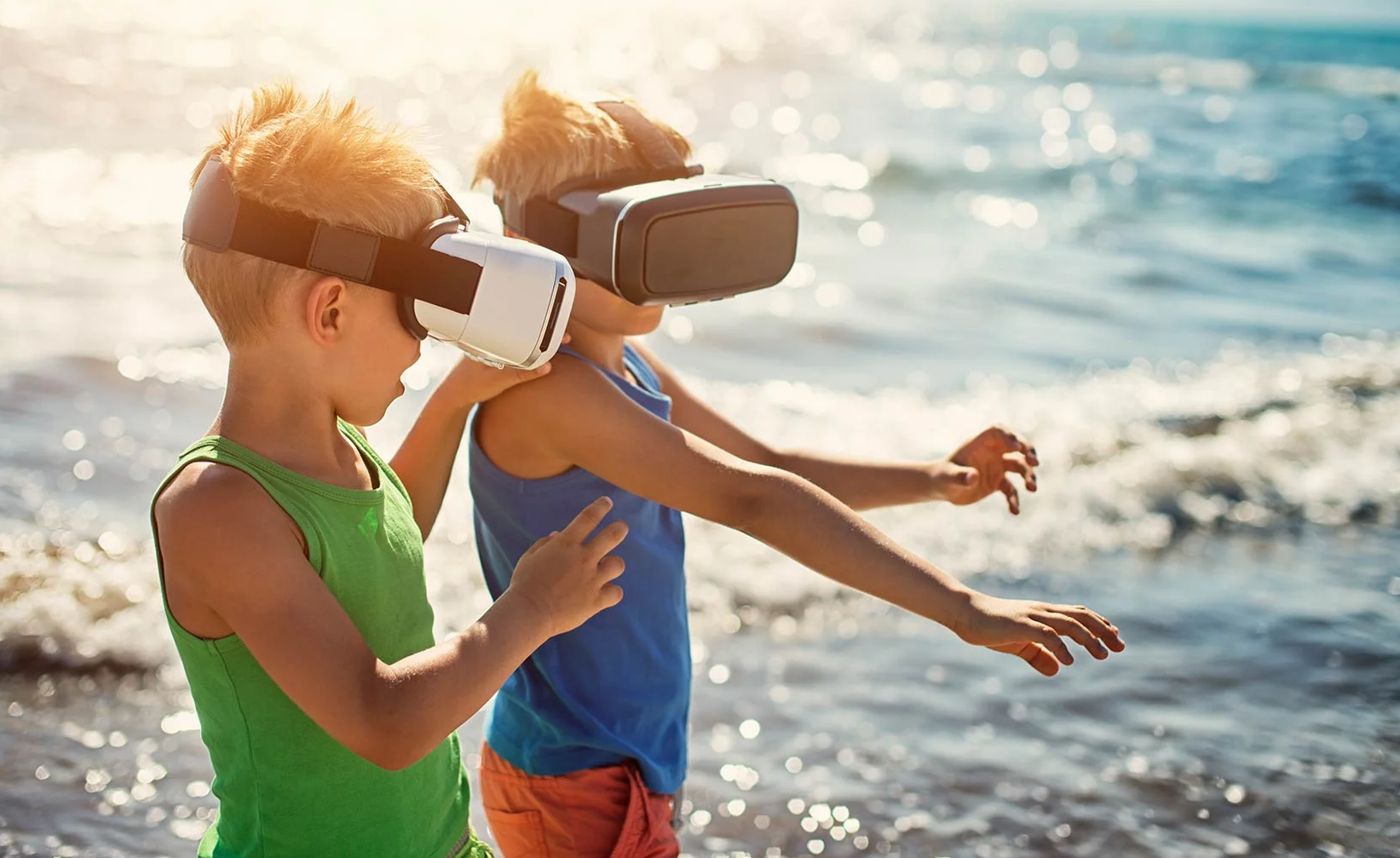
Virtual Reality in Tourism
Virtual Reality in Tourism is on the ever-evolving landscape of technology, growing at a high speed. Virtual Reality (VR) has emerged as a game-changer in various industries, and tourism is no exception. As travelers seek more immersive and unique experiences, the marriage of virtual reality and tourism presents exciting possibilities. This article delves into the fusion of virtual reality and the tourism sector, exploring its benefits, challenges, as well as the transformative potential it holds for the way we explore the world.
The Rise of Virtual Reality in Tourism
Virtual Reality, a technology that creates a simulated environment, has gained remarkable traction in recent years. This rise can be attributed to advancements in hardware, such as VR headsets, and the development of engaging VR content. In the context of tourism, VR allows travelers to virtually transport themselves to destinations around the world without leaving their homes.

- Virtual Previews: Before booking a trip, travelers can use VR to explore their destination. They can walk through hotel rooms, experience the ambiance of local restaurants, and even get a taste of popular attractions. This not only helps in making informed decisions but also increases excitement for the upcoming journey.
- Cultural Immersion: VR enables travelers to immerse themselves in the culture of a destination. They can virtually attend local festivals, visit historical sites, and interact with locals, gaining a deeper understanding of the place they’re planning to visit.
- Overcoming Barriers: For individuals with physical disabilities or limitations, VR can break down barriers by allowing them to experience destinations that might otherwise be inaccessible. This inclusivity adds a new dimension to the tourism industry.
- Time Travel: Historical sites can be resurrected through VR, allowing tourists to step back in time and witness key historical moments or explore ancient civilizations, thus enhancing the educational aspect of travel.
Challenges and Considerations
While the potential of virtual reality in tourism is promising, there are certain challenges that need to be addressed:
- Authenticity: One of the core aspects of travel is the authenticity of experiences. VR may struggle to capture the genuine essence of a place, including the smells, sounds, and spontaneous interactions that make travel so enriching.
- Dependency Concerns: Over reliance on VR might lead to a decline in actual travel, which could have negative economic impacts on the tourism industry of physical destinations.
- Cost and Accessibility: VR equipment and content creation can be expensive. Ensuring accessibility to a wide range of travelers, including those from economically disadvantaged backgrounds, is crucial.
- Environmental Impact: Virtual reality experiences consume energy and resources. If not properly managed, the increased use of VR could contribute to environmental issues.

The Future of VR-Enabled Tourism
Despite these challenges, the fusion of virtual reality and tourism holds immense potential for the future:
- Hybrid Travel Experiences: A hybrid model could emerge, where travelers use VR to preview destinations and plan their trips, but still embark on physical journeys for a more complete experience.
- Destination Marketing: VR could revolutionize destination marketing. Instead of traditional brochures, potential travelers could be offered immersive VR experiences to entice them to visit.
- Education and Conservation: VR can serve as a powerful educational tool, raising awareness about cultural heritage and environmental conservation efforts.
- Personalization: As VR technology improves, tailored travel experiences could become the norm, allowing travelers to customize their virtual explorations according to their interests.
Conclusion
Virtual Reality has the potential to reshape the tourism industry by providing innovative ways for travelers to engage with destinations. While it may not replace the charm of physical travel, it can certainly enhance it by offering a new dimension of exploration and immersion. As the technology continues to evolve and the tourism sector adapts, the future promises a blend of virtual and physical travel experiences that cater to a wide range of preferences and needs.
FAQ, People also ask
- How is virtual reality used in tourism?
- What are the benefits of VR tourism?
- How does VR affect the tourism industry?
- What is the future of VR in tourism?
- Why are virtual tours important in tourism?
- How is VR used in hospitality industry?
- Will virtual reality replace travel?
- How augmented reality is changing the travel and tourism industry?
- What is the purpose of a virtual tour?
- What is metaverse tourism?
- Are virtual tours virtual reality?
- How successful are virtual tours?
- Which technology is used for virtual tours?
- What are examples of virtual reality?
- What are the 3 types of virtual reality?
- What are the 4 elements of virtual reality?
- What is virtual reality advantages and disadvantages?
- What are 3 benefits of VR?
- What is the importance of virtual reality?
- What are the most important benefits of using virtual reality?
- What are 5 advantages of VR technology?
- What are the limitations of virtual reality?
- Why is virtual reality good for society?
- How does virtual reality help the environment?
- Why is virtual reality important for the future?
- Which two features are most important for virtual reality?
- What are three major components of a virtual reality system?
- How does virtual reality help to make experiences more inclusive?
- How could a travel and tourism company utilize virtual reality to enhance their business?
- Does VR tourism enhance users experience?
- What is the value of the virtual tourism market?
- Is virtual reality technology an effective tool for tourism destination marketing a flow perspective?
- What are the disadvantages of VR in tourism?
- What are the 3 biggest platforms for tourism?
- What are the new technologies in the tourism industry?
- What is the role of technology in the tourism industry?
- What technology is used in tourism industry?






